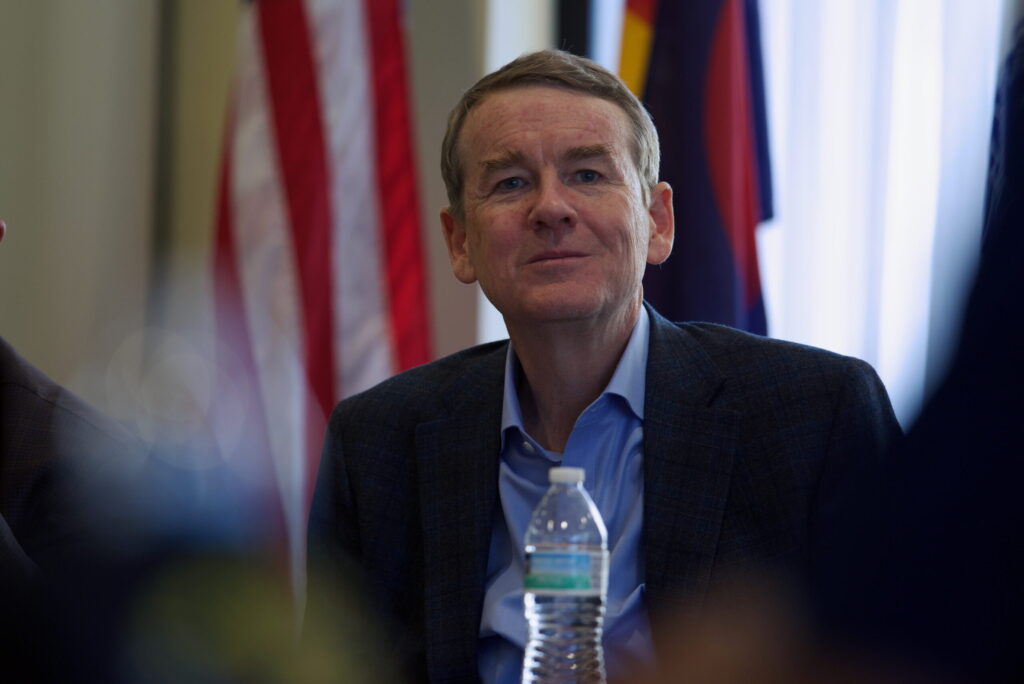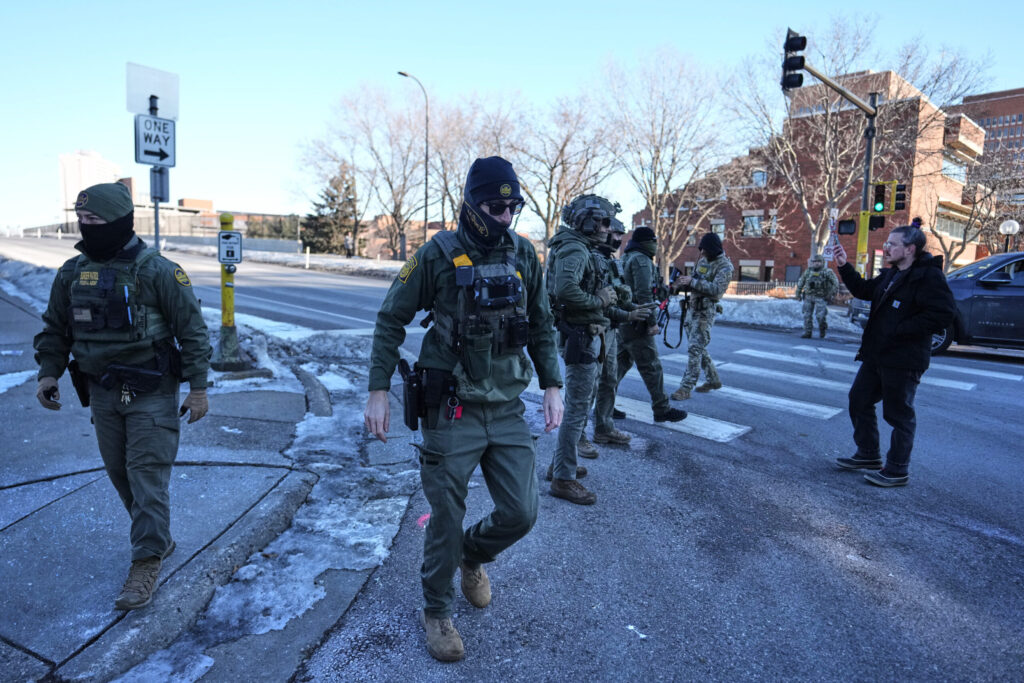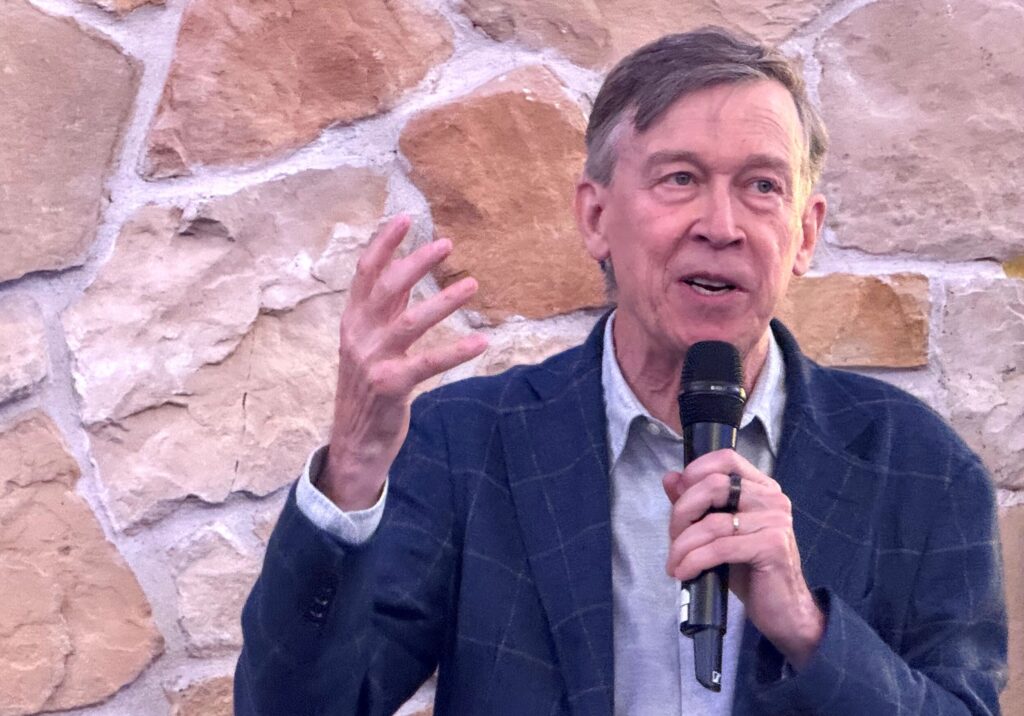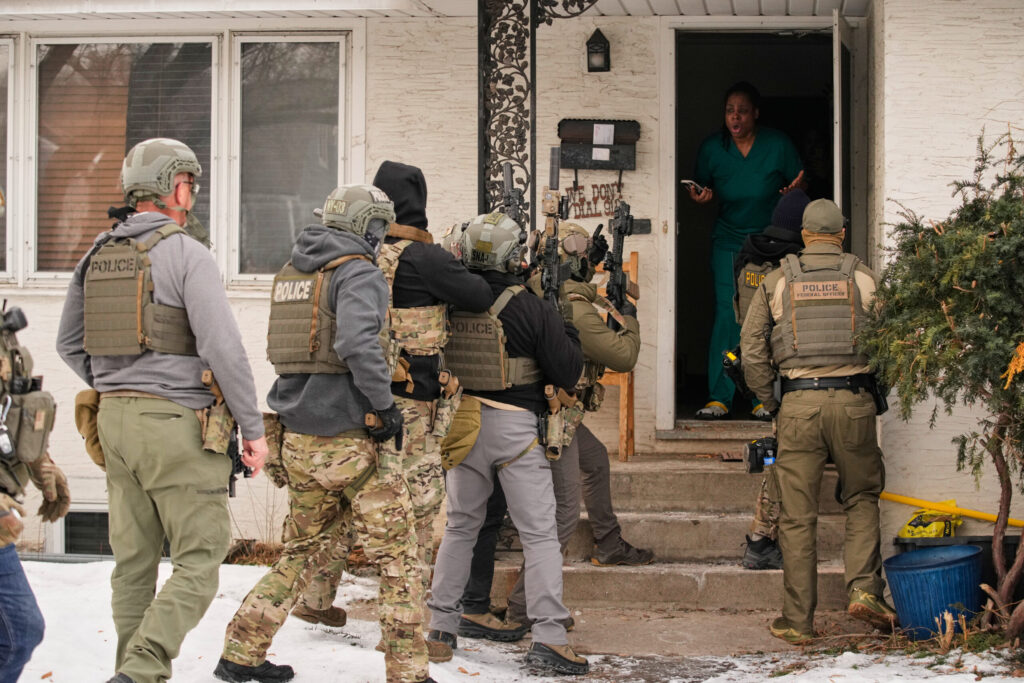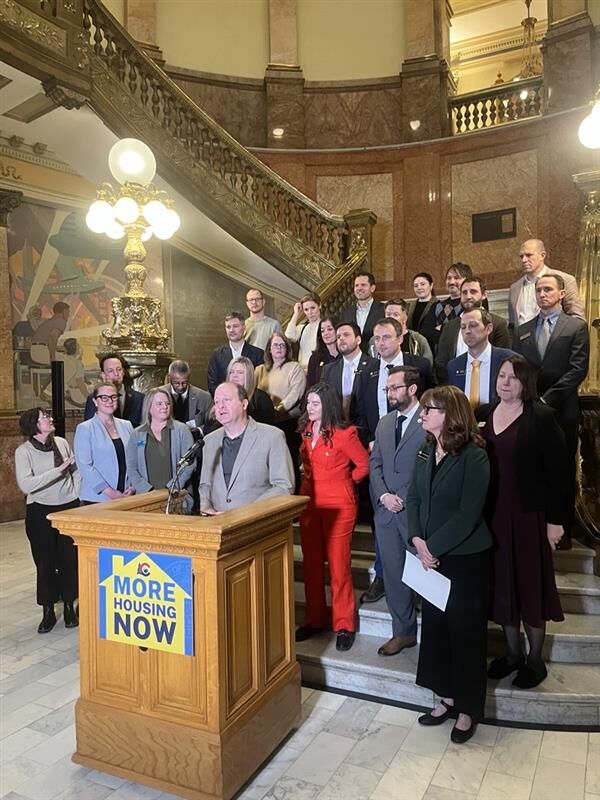Fireworks erupt as Aurora council debates tax cut
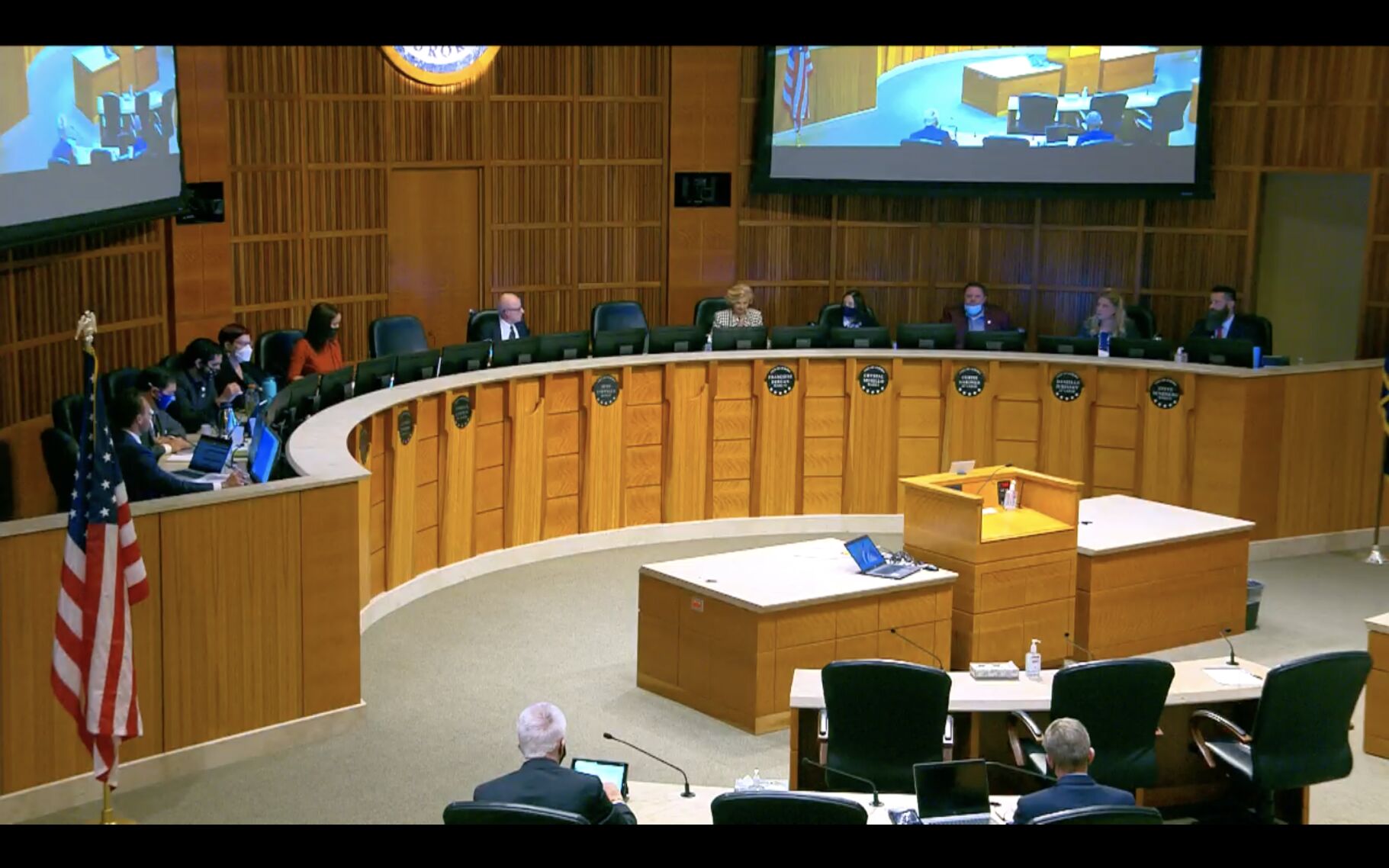
Fireworks erupted during the Aurora City Council’s study session on Monday as council members hotly debated a proposal to repeal the city’s occupational tax, a move one councilmember called “asinine” but something others praised as smart business-friendly policy.
Tensions also came to a head as some lawmakers accused city staff of ambushing the bill sponsor with a presentation they said was clearly biased against the plan and withheld from her prior to the meeting.
Councilmember Danielle Jurinsky wants to repeal Aurora’s occupational privilege tax, which collects $4 for every employee in the city on a monthly basis. Employees and employers are each responsible for half of the tax, paying $2 respectively.
Deadline extended for public survey about next Aurora fire chief
The councilmember brought forward the proposal during September committee meetings and council discussed it again during a budget workshop this weekend. Jurinsky had originally proposed repealing the tax effective Jan. 1 and changed the bill to repeal the tax in January 2024 if it is ultimately passed.
Councilmembers Steve Sundberg, Mayor Pro Tem Francoise Bergan, Dustin Zvonek and Jurinsky all voiced support for the tax repeal on Monday, which has not yet come to a regular meeting for formal consideration.
But after city staff’s presentation on Monday offered a stark warning about potential fallout if the tax is repealed, Jurinsky derided the presentation as one-sided and an attempt to undermine her proposal.
“Shame on both of you. Shame on city staff,” Jurinsky said to the staff members.
Aurora council to discuss homelessness, redistricting at Monday study session
The tax generates between $5 million and $6 million annually. Staff project it will generate $5.9 million in 2023. Eliminating it next year would amount to a 5% cut in the 2023 budget. The city would need to come up with an additional $8 million in 2024 to have a balanced budget if the tax were repealed, staff said.
Aurora first implemented its occupational privilege tax in 1986. The tax was originally designed to support the cost of street maintenance, police and fire services, Jeff Edwards said, a tax manager with the city.
A majority of the revenue it brings in is generated by Top 150 companies, and of those 54% are large corporations and 27% are government employers, Edwards said. Those large companies would see a savings of roughly $2.8 million if the tax were repealed. Employees would save $24 a year.
Aurora is one of five communities in Colorado with an occupational privilege tax, according to staff presentations, which show Sheridan, Greenwood Village, Glendale and Denver also implement the tax at varying dollar amounts.
Budget Manager Greg Hays said $8 million shortfall was the equivalent of about 111 city positions.
“It’s not a small amount,” he said.
Repealing the tax would make it hard to provide a greater recession reserve, something the mayor has requested, could negatively impact the city’s credit rating, and moves the city farther away from diversifying its revenue sources, Hays said.
Under pressure from Jurinsky, Hays said he prepared the presentation in response to questions from her over the weekend.
Jurinsky lambasted staff for not coming to her directly with answers to those questions, said she had not seen their Monday night presentation and that it was completely different from the presentation provided during committee discussions. Bergan also said she found it disrespectful that the presentation material was not shown to Jurinsky before the study session. Jurinsky put city manager Jim Twombly on the spot.
“Can we hear from the CEO of this city, why he has city staff setting up sitting councilmembers,” she said.
Aurora, Colorado officials hunker down in search of a viable homeless strategy
The presentation was in response to questions raised in front of the whole council at the weekend’s budget workshop, Twombly said, and staff felt the entire council would like to hear the answers.
“We have a responsibility as staff to provide council with information so that they make fully informed decisions and that’s what this is about,” Twombly said.
Councilmember Juan Marcano said the presentation affirmed to him that considering repealing the tax “is asinine” amid uncertain economic forecasts and growing needs in the city. Jurinsky’s comments toward staff left him shocked, he said, chastising her for her confrontation with staff.
“If you are feeling personally attacked by them pointing out inconvenient truths, maybe analyze your policy instead of looking for a scapegoat,” he said.
Aurora “is an exceptionally lean” and well-run city, he said. Repealing the tax would jeopardize the city’s credit rating, its ability to provide services, “and god knows what else, at a time when we are being asked to do more, not less.” He called the proposal “a waste of time” unless Jurinsky could find a way to make up the revenue loss without cutting city services.
“You need to check yourselves, respect our staff and respect the public. They deserve to know all this information as well,” Marcano said.
Councilmember Dustin Zurinsky criticized Twombly as using “wildly inappropriate” scare tactics in the presentation for suggesting repealing the occupation tax would lead to implementing a grocery tax. The presentation was “completely one sided,” he said, and offered no plausible ways to make it happen successfully.
“It was just a list of horribles, of what could happen. And I think it’s a lack of creativity and a lack of leadership,” he said.
Zvonek disputed Marcano, saying he did not believe staff provided a full picture, and suggested Marcano was too eager to hear information that reaffirmed his stance the proposal isn’t feasible. Marcano fired back, saying until the city knows how it would make up for the lost funds, “this is just magical thinking.”
“Maybe pigs will fly too, Dustin. Who knows,” he said.
Jurinsky walked through her proposal at a September committee meeting saying “it’s pretty straight up and it’s pretty simple,” she said.
“I think that it’s time that we take this off of the backs of small businesses, as well as workers in Aurora,” Jurinsky said.
Some of the tax revenue is used by the Aurora Urban Renewal Authority for incentives and development, staff said. They also cautioned the tax is easier to repeal than it is to reinstate.
“It’s not a very easy thing to reimplement. It would have to go back through the voters,” Edwards said in September.
Jurinsky emphatically stressed during the committee discussion that she asked if the tax dollars were dedicated to anything in particular when she began researching the repeal last year.
“I was told numerous times, ‘No, they are not earmarked for anything, they just go into the general fund,'” Jurinsky said.
Councilmember Crystal Murillo voiced opposition to moving the tax cut forward for full council consideration, saying murkiness about the long-term budgetary impacts and presentations from staff left her concerned.
“There will be budget implications,” she said.
The 2023 budget has not received official council approval, but it is largely laid out after months of work on the part of city staff going through it “line item by line item,” she said. At that time, Jurinsky was still proposing repealing the tax next year, something Murillo called “last minute” and rushed.
Council has recently debated the need for providing fiscal notes with each proposal that could impact the city budget.
Jurisnky did not believe she should be responsible for suggesting where to make cuts elsewhere in the budget because there is currently a surplus in the budget, she said in September.
Unlike Murillo, Zvonek viewed the timing as appropriate ahed of this year’s budget workshops, he said. The tax cut appealed to him as a way for Aurora to send a message and position Aurora to be the most “business friendly city in the state.”
Repealing the tax would be more equitable as well, Jurinsky said, lifting that financial burden for people regardless of race or gender.
“It is actually the city’s privilege. It is our privilege for businesses to come here,” she said, “and for workers to want to work in Aurora.”



